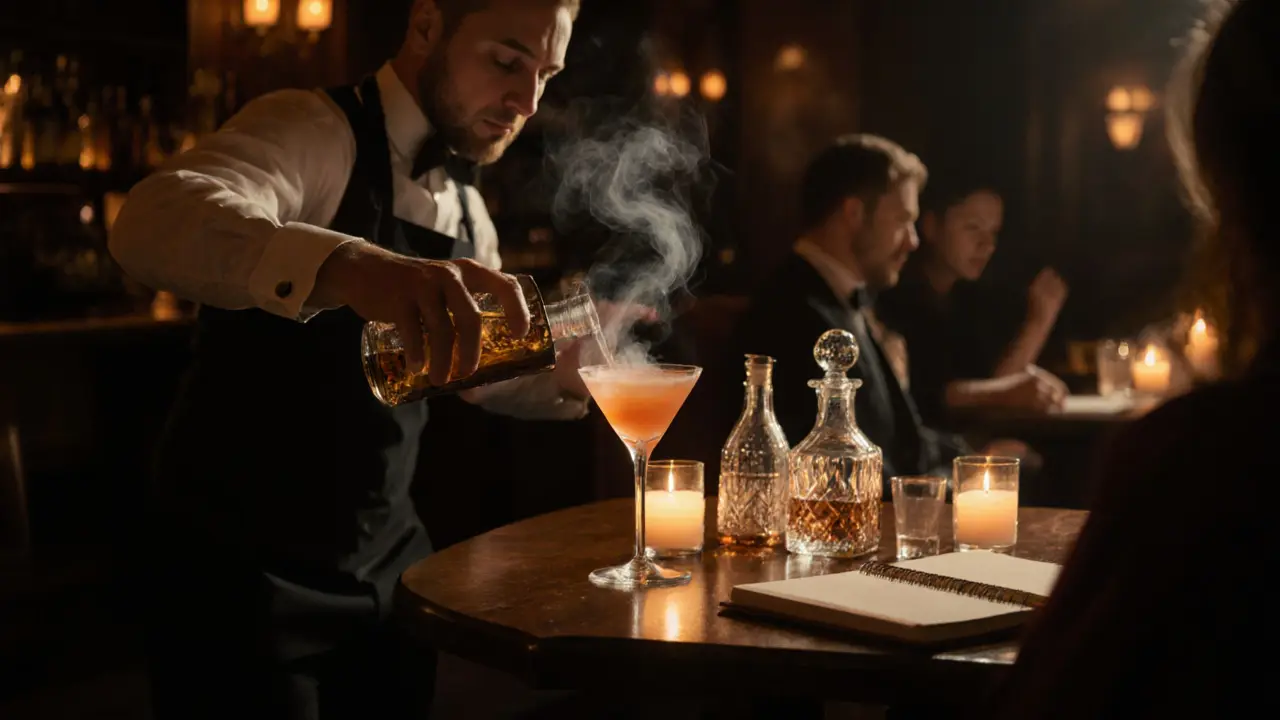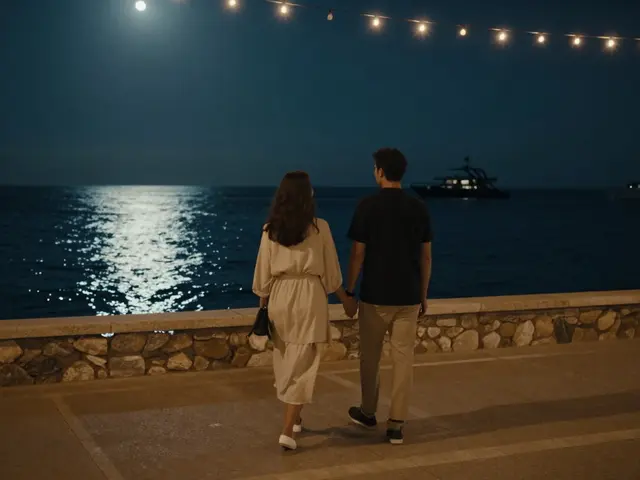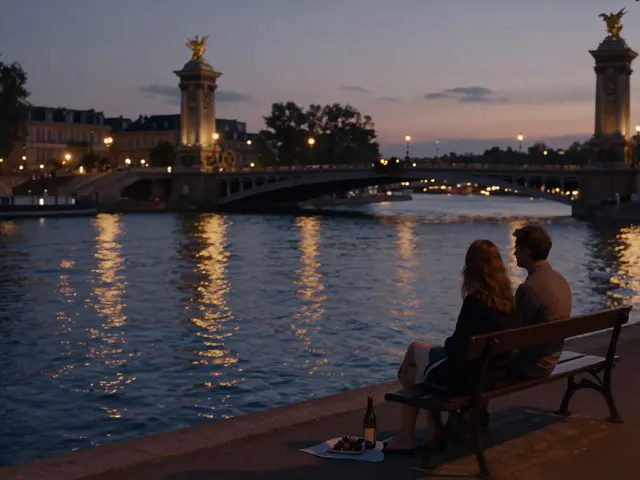London’s nightlife isn’t just about loud clubs and crowded pubs. Beneath the neon lights and bass-heavy beats, there’s a quieter, deeper scene-ones where the music hums like a mantra, the lighting glows like candlelight, and the drinks are made with intention, not just alcohol. If you’re looking for places that don’t just serve drinks but also space for stillness, connection, or inner reflection, London has more than you think.
Where the Night Feels Like a Sanctuary
Most people think of London’s nightlife as something to escape into. But for spiritual seekers, it’s about finding something to return to-yourself. The best venues for this aren’t the ones with the longest lines. They’re the ones where time slows down, where silence is respected, and where the energy feels intentional.
Take The Alchemist in Soho. It’s not just a cocktail bar. It’s an experience. The bartenders don’t just pour drinks-they explain the ingredients, the symbolism, the history behind each creation. One signature drink, called ‘The Alchemist’s Dream,’ is served with a smoke-filled glass that clears slowly, like thoughts settling after meditation. The music is ambient, often live cello or Tibetan singing bowls. People come here not to get drunk, but to feel something real. Many leave with a notebook, jotting down thoughts or questions that surfaced in the quiet.
Meditative Bars and Mindful Drinking
Mindful drinking is growing in London. It’s not about sobriety-it’s about presence. Places like Bar Termini in Covent Garden have quietly become hubs for this movement. Their bar is small, dimly lit, and the staff remember your name and your usual. They serve low-alcohol or non-alcoholic cocktails made with botanicals like lavender, chamomile, and ashwagandha. One regular, a yoga teacher from Hackney, told me she comes here after evening classes to sit alone with a ‘Lavender Cloud’ drink and just breathe. No phone. No music. Just the sound of ice clinking.
Another spot, The Quiet Bar in Shoreditch, doesn’t play music at all. Instead, they offer guided breathing sessions at 9 p.m. every Thursday. Guests are given a small crystal to hold and a printed card with five breathing patterns. No one talks. No one rushes. You pay £12 for a drink and 20 minutes of silence. It’s not a gimmick-it’s been running for three years, and most patrons return monthly.
Occult and Esoteric Venues
London has long been a magnet for mystics, witches, and seekers of hidden knowledge. The city’s occult scene isn’t just in bookshops or tarot parlors-it’s in the bars too.
Witches’ Brew in Camden is a tiny, unmarked door tucked behind a vintage clothing store. Inside, the walls are lined with crystals, tarot decks, and candles. The drinks are named after ancient rituals: ‘The Blood Moon Elixir,’ ‘The Moonlit Oracle,’ ‘The Soul Cleanser.’ The bartender, who goes by Luna, will ask you what you’re seeking before making your drink. One regular, a retired therapist from Kent, said he came here after his wife passed away. He didn’t know what he needed-until he tasted the ‘Soul Cleanser,’ made with rosemary, elderflower, and a drop of black salt. He said it felt like a hug from the universe.
Another place, The Hermetic Library in Islington, is a bar hidden inside a former 19th-century Masonic lodge. The ceiling is painted with astrological symbols. The drinks are paired with readings from ancient texts. You can order a ‘Mercury’s Whisper’ cocktail and get a short reading from a card pulled from a tarot deck curated by a local occult historian. It’s not fortune-telling-it’s reflection.
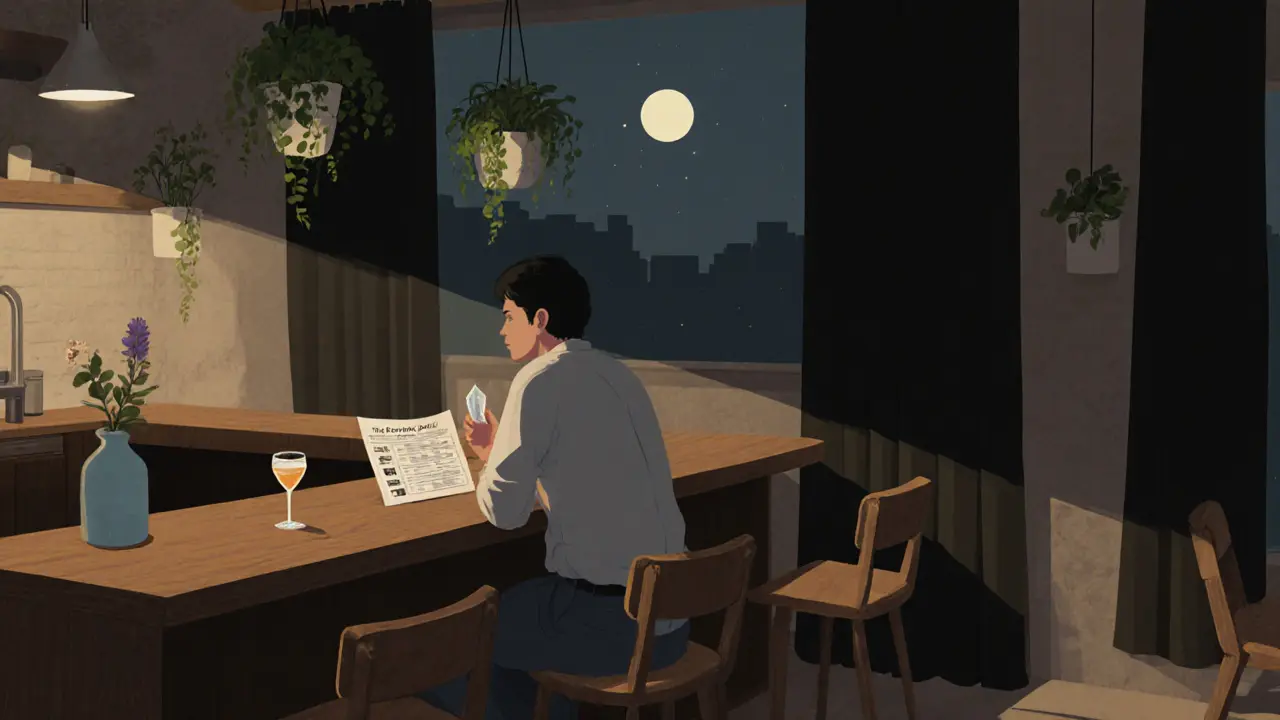
Sound Baths and Nighttime Healing
Some nights, the best nightlife doesn’t involve drinking at all. It involves lying down.
Sound Sanctuary in Brixton hosts weekly sound bath sessions from 9 p.m. to 11 p.m. You bring a mat or a blanket. They dim the lights, play crystal bowls, gongs, and tuning forks, and let the vibrations wash over you. No talking. No phones. Just sound. People fall asleep. Some cry. Others sit awake, eyes closed, feeling something they can’t name. It’s free to attend, but donations go to a local mental health charity for marginalized communities. The founder, a former dancer with chronic anxiety, started it after a therapist told her, ‘Your body remembers what your mind forgets.’
Another option is Yoga & Nightcap in Notting Hill. It’s a 60-minute gentle yoga class followed by a herbal tea tasting and quiet conversation. No pressure to speak. No expectation to be ‘enlightened.’ Just presence. It’s become a weekly ritual for teachers, nurses, and artists who spend their days giving to others and need to remember how to receive.
What Makes a Nightlife Spot Spiritual?
It’s not about symbols or incense. It’s about three things:
- Space for silence. Can you sit without noise pulling your attention away?
- Intentional service. Do the staff treat you like a person, not a customer?
- Freedom from performance. Are you allowed to be quiet, confused, tired, or still-without judgment?
Many spiritual seekers avoid nightlife because it feels like a stage. But these places don’t ask you to perform. They ask you to be.
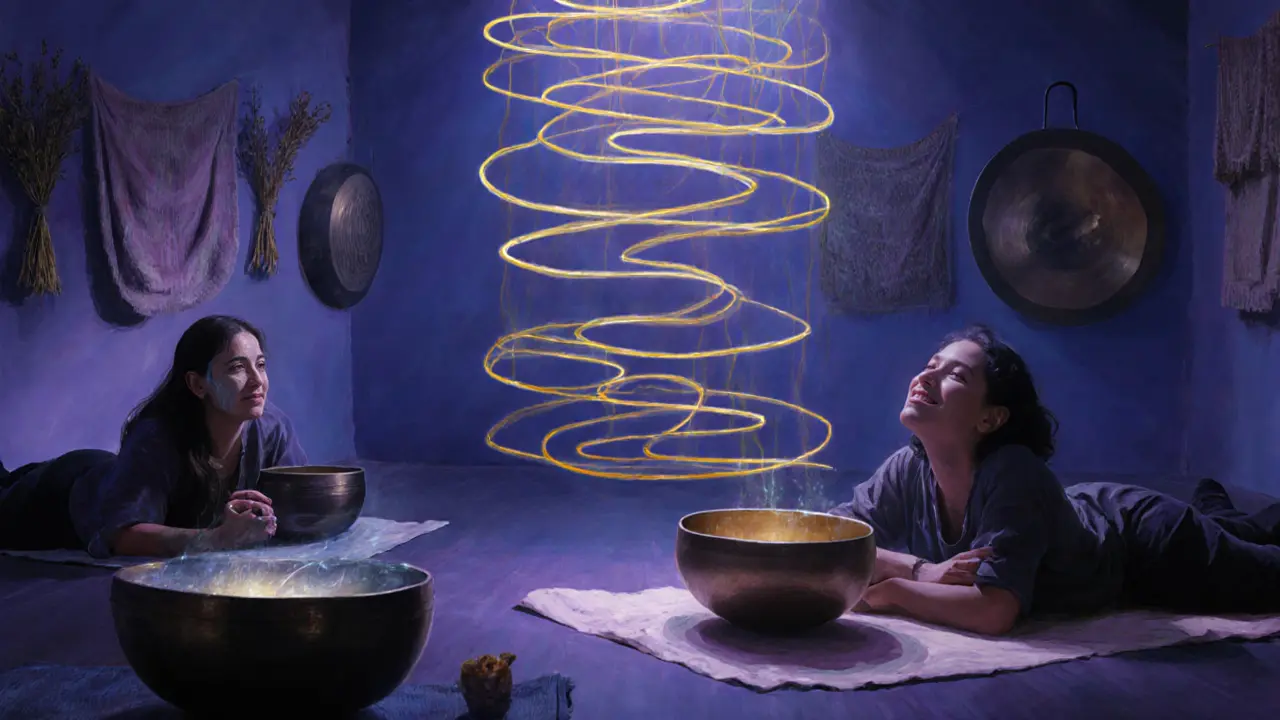
How to Find More Like This
If you’re looking for more venues like these, skip the party apps. Instead:
- Follow local meditation centers-they often host evening events.
- Check community boards in bookshops like Heywood Hill or Daunt Books.
- Join Facebook groups like ‘London Mindful Nights’ or ‘Spiritual London Meetups.’
- Ask baristas at independent coffee shops. They often know about hidden events.
There’s no map for this kind of nightlife. It’s passed by word of mouth. By silence. By someone saying, ‘You should try this place. It changed how I see the night.’
Final Thought: The Night Doesn’t Have to Be Loud
You don’t need to dance to feel alive. You don’t need to shout to be heard. London’s spiritual nightlife isn’t about escaping the day-it’s about meeting yourself in the quiet hours when the city exhales.
Try one of these places. Sit alone. Order something slow. Let the night unfold without rushing. You might not find answers. But you might find something better-peace.
Can you really find spiritual experiences in a bar?
Yes-especially in London. Some bars are designed to slow you down, not speed you up. They use lighting, sound, drink ingredients, and staff presence to create space for reflection. It’s not about religion-it’s about presence. Places like The Alchemist, The Quiet Bar, and Witches’ Brew focus on intention over intoxication.
Are these places expensive?
Most are reasonably priced. Cocktails range from £10 to £16, similar to other craft bars. Sound baths are often donation-based. The Quiet Bar charges £12 for a drink and 20 minutes of silence-less than a standard cocktail in a tourist spot. You’re paying for atmosphere, not just alcohol.
Do I need to believe in crystals or witchcraft to enjoy these spots?
No. The symbols and rituals are there to create mood, not to convert you. Many visitors have no spiritual beliefs at all. They come because they’re tired, overstimulated, or just want to sit quietly with a good drink. The magic isn’t in the crystals-it’s in the permission to be still.
Are these venues open late?
Most close by midnight or 1 a.m., which is actually later than most meditation centers. Sound Sanctuary ends at 11 p.m., and The Quiet Bar closes at 1 a.m. These aren’t all-night raves-they’re intentional endings to the day, designed to help you wind down, not rev up.
Is this just a trend, or is it growing?
It’s growing. After the pandemic, more people in London started craving quiet, meaningful experiences over loud parties. A 2024 survey by the London Wellness Collective found that 37% of adults under 35 now prefer ‘mindful nightlife’ over traditional clubbing. New venues open every few months. This isn’t a fad-it’s a shift in how people want to spend their evenings.
